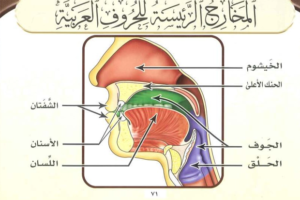
Islam And The World – Part 2
If you haven’t read part 1, here you can read it first:
Islam And The World – Part 1
The Jews
Of all religious communities, the Jews alone could boast of still having a large part of their spiritual inheritance. They were also the most efficient in the art of interpreting theological and scriptural terms and symbols. But they did not command a position in the fields of religion, culture, or politics where they could influence others. They were destined to live in subjection to other nations and to be exposed to injustice, oppression, chastisement, extradition, troubles, and hardships. Political serfdom, oppression, and anguish suffered indefinitely had produced in them a typical racial character. They were notorious all over the world for their excessive pride in blood and greed. Meck and submissive in distress, they were tyrannical and mean when they had the upper hand. Hypocrisy, deceit, treachery selfishness, cruelty, and usury had become the 11om1al traits of their nature.
In the Qur’an, we find repeated references to the extent to which they had sunk into degradation in the sixth and seventh centuries. The mutual jealousy and hatred between the Christians and the Jews, which did not permit any opportunities to settle old scores, was brought to its climax towards the dose of the sixth century. In 610 the Jews of Antioch rebelled against the Christians, and Emperor Phocas sent his famous General Bonosus to put down the uprising, who set about his task with such enthusiasm that the entire Jewish population was wiped out. Thousands of Jews perished by the sword, while hundreds were drowned or burnt alive or thrown to wild beasts. The Jews took their revenge in 615 by instigating Khusrau Parvez to order a general massacre of Syrian Christians when he overran that country. Then, in 630, Heraclius wreaked such savage vengeance on the Jews that in the Roman Empire, those alone could save themselves who were able to flee or go into hiding.
Iran
Iran was Rome’s equal in the governance and administration of the civilized world. Its moral foundations had never been sound. It was a hotbed of vice and folly. Conjugal arrangements considered criminal in other parts of the world were not unlawful or undesirable in the opinion of the Iranians. It is stated that Yazdegerd II, who ruled during the middle of the fifth century, married his daughter and afterward killed her, and that Bahram Chobln, in the sixth century, had marital relations with his sister. As Professor Arthur Christensen remarked, the Iranians found nothing repugnant in incestuous connection. The famous Chinese traveler Hiuen Tsang stated that no relationships were excluded from conjugality in Iranian law and society.
Partly as a reaction to unbounded immorality and perversion, and partly under the influence of the supposed conflict between light and Darkness that had been the favorite theme of Iranian philosophy from the earliest times, in the third century ManI preached his cult of celibacy as the panacea for all the ills from which humanity was suffering. Proceeding from the curious hypothesis that evil was the outcome of the conflux of Light and Darkness, he declared that, for the permanent victory of the former over the latter, the human race needed to bring itself to an end voluntarily by ceasing to procreate.
-
King Worship
The Chosroes of Iran claimed and were accepted by their people, to have divine blood running in their veins and the Iranians also believed that there was divinity in the very nature of their rulers. The people prostrated themselves before them, sang to the glory of their godhead, and swore that they could do no wrong. It was disrespectful to utter the name of the Emperor or to sit down in his presence.
The Iranians believed that the Emperor had a natural right over everyone, without anyone having any right over him. Whatever he granted to his subjects was purely out of his generosity. The subjects were there to obey, and not to interfere.
-
Fire Worship
Fire can neither educate nor inform. It can neither redeem the sinner nor instruct its devotees in life problems. The religion of the fire-worshippers was, therefore, but a conglomeration of certain rites and ceremonies to be performed at certain times and certain places. Outside the temples, at home and in the marketplaces, and other spheres of individual and collective life, fire-worshippers were to act as they pleased. There were no spiritual ideals, no ethical dos, and don’ts that could fit in with social or national life in Iran. The fire-worshippers had to have recourse to their Judgement or follow blindly the demands of expediency, as polytheists of all ages are known to have done.
The Zoroastrians of Iran were, as such, no better off than pagans and unbelievers in this respect. They were without the advantage of possessing a complete and self-contained religion that could be a source of moral awareness and which could furnish them with ideals that could hold good in all walks of life.
-
Taxes in Iran
The administrative and financial structure of Iran was neither just nor stable and was subject to the ever-changing pattern of the needs and ambitions of the rulers.
-
Royal Treasuries and the Private Wealth of the Iranian Emperors
A very meager part of the Imperial revenue was spent on public welfare. The emperors of Iran believed in amassing as much wealth for themselves as possible. When the treasure of Khusrau II was shifted to a new building in Mada’in (Ctesiphon) in 607, it included 468 million Mithqals gold. (worth approximately 375 million gold francs).
The distribution of wealth was grossly unjust. A few individuals were excessively rich, and the rest were immersed in poverty. The reign of Naushirwan is famous in Iranian history for the justice and benevolence of his administration.
References:
English Islam and the World
https://www.muslim-library.com/dl/books/English-Islam-And-The-World.pdf
By: SAYYED ABUL HASAN ‘ALI NADWI
Translated by: Dr. Muhammad Asif Kidwai


